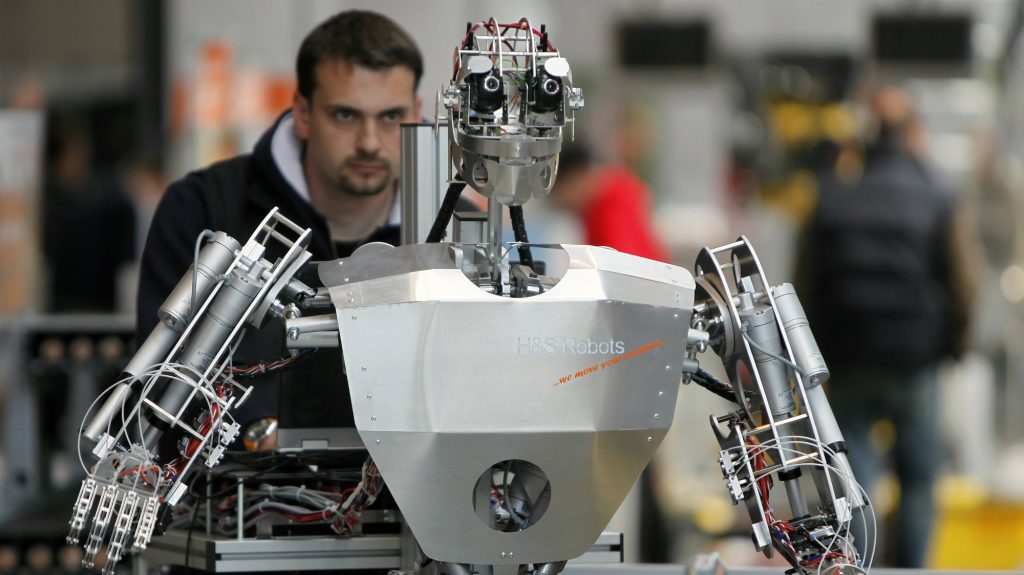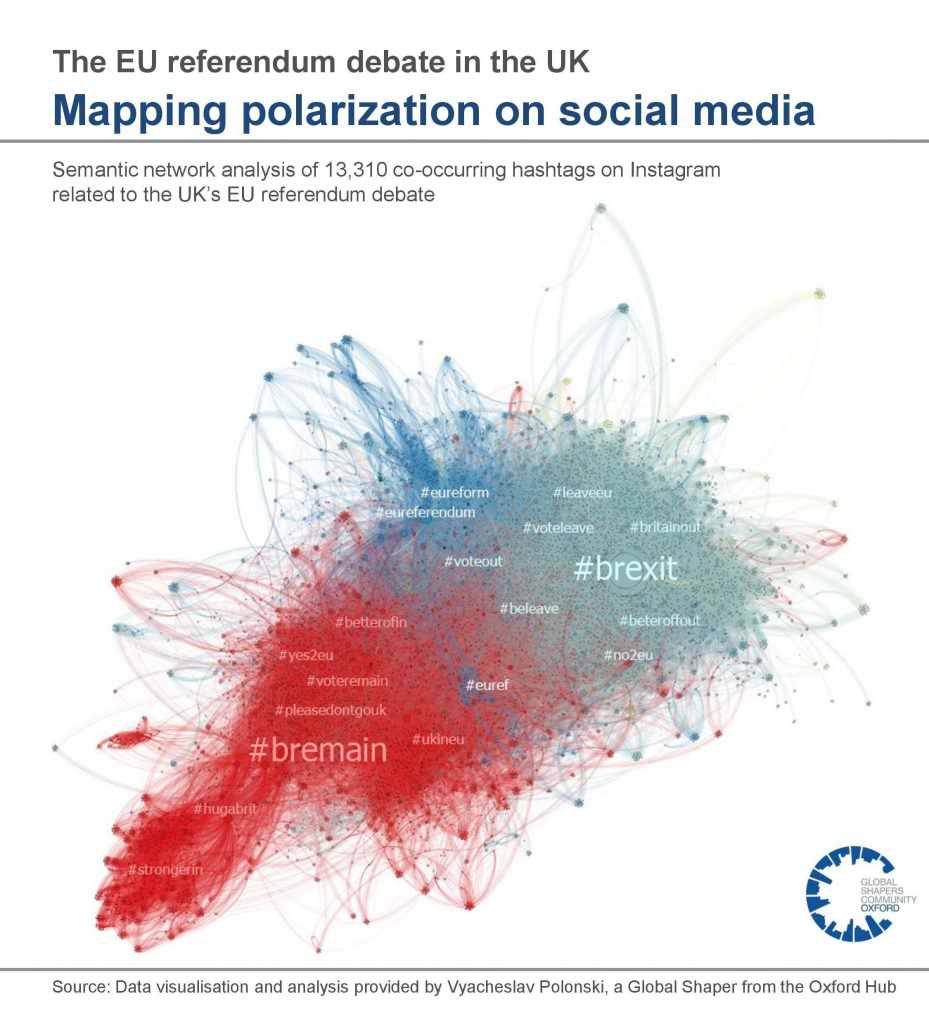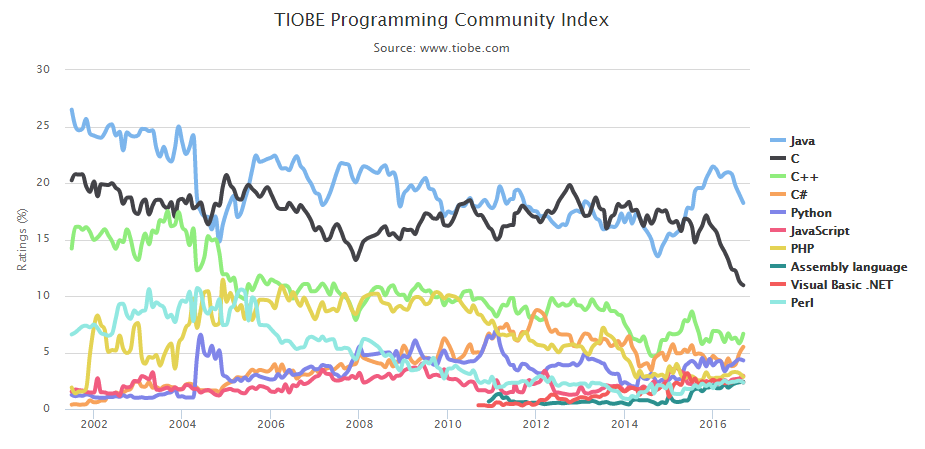Sections
Innocence and Experience
[avatar user=”malm” size=”small” align=”left” link=”file” /]
They stumble all night over bones of the dead
And feel they know not what but care;
And wish to lead others when they should be ledThe Voice of the Ancient Bard, William Blake
James Dyson has emerged post-Brexit asa brash and contrarian tech prophet for Leave. The creator of a company whose products are built around the circulation of hot air delivers yet again in this Guardian interview:
“This is going to sound wrong , but we don’t like experience,” he explains in a rare interview at Dyson’s headquarters. “Experience can be inhibiting. I would rather have a naive, flexible, experimental, pioneering approach, because we want to do everything differently. It is a lot easier if people don’t come along – and this is going to sound slightly nasty – with baggage, and experience with how things are done. We want to find a new and better way of doing things. Graduates are very good at doing that.”
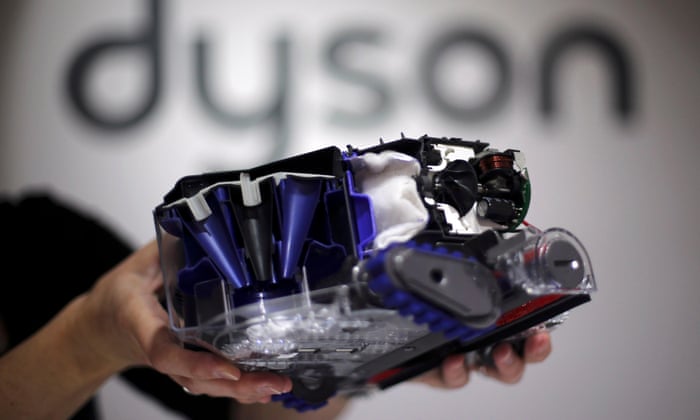
It’s a well worn trope in the forever young world of internet technology that experience is somehow a bad thing and it can be exacerbated by feeling worn out after lots of it. However, as with everything else in life, there’s no silver bullet to finding “new and better ways” of doing things and a trade-off exists between the two extremes of innocence and experience.
On the one hand, youth can invigorate an institutionalised environment and force change that may not otherwise happen. This InfoQ post suggesting Millennials are demanding corporate cultures to embrace agility is a case in point. Experience can result in calcification of approach and an inability to process the new, the Einstellung effect referenced in the blog a year ago. On the other hand experience and the accumulation of failures reveal truths which inexperience cannot buy. Graduates are not somehow intrinsically capable at finding “new and better ways” without any guidance or mentorship from older staff. Also key business support functions such as supplier selection, contract negotiation, data privacy, program management not to mention management and alignment of team efforts require “adult supervision” where prior experience is critical. In fact, given the direction of travel of software technology into the realm of black boxes built around models, serious adult supervision seems more urgent than ever if we are to avoid some of the disastrous consequences of short-termism in technology. This excellent and disturbing post in which Cory Doctorow outlines the disastrous privacy implications of overzealous data collection is a good example of what is at stake:
The best way to secure data is never to collect it in the first place. Data that is collected is likely to leak. Data that is lected and retained is certain to leak. A house that can be controlled by voice and gesture is a house with a camera and a microphone covering every inch of its floorplan. … The IoT will rupture notice-and-consent, but without some other legal framework to replace it, it’ll be a free-for-all that ends in catastrophe.
Dyson’s comments suggest his company may not have an entirely robust process for eliminating unconscious bias during the interview process. As highlighted below, unconscious bias in terms of gender, race and, yes, age, are serious issues in the tech industry. Instead of relying upon cheap soundbites, the questions prospective Dyson applicants should ask themselves is how the expansionist company is screening for the best engineering talent across the board, what precisely they are doing to steer and nurture it to world class calibre and what it will be set to work upon. It’s also worth them reflecting that 20% of CEOs, in spite of undergoing what one assumes in many cases are rigorous checks, appear to be psychopaths.
Amazon
Amazon’s Echo went on sale this week in the UK and Germany.
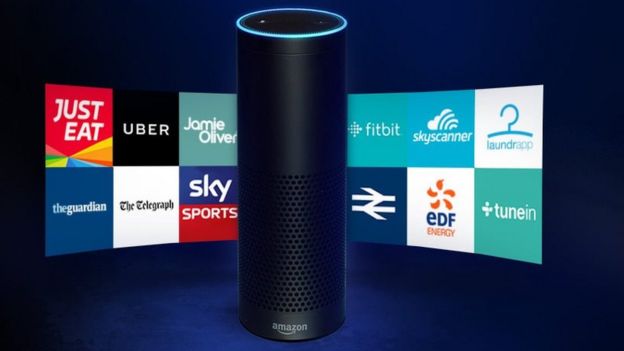
Babak Hodjat, the creator of Siri criticised the product suggesting it was “incomplete”, a claim that that is unlikely to trouble Amazon. Consumers may be more concerned by the always-on nature of the speaker might especially when combined with the push notifications being built into the Alexa platform. Amazon should aim avoid the sort of notification fatigue that can afflict a typical Android phone. Either way, it will be interesting to see if the Echo can replicate US success in Europe which is more hostile territory in terms of privacy.
Amazon pop-up stores in the US is a clear sign of a broader push into consumer retail.
A fascinating interview with Shel Kaphan, Amazon’s employee number 1 brings back memories of the good old bad old days. It does occasionally still happen:
Craig : How did you troubleshoot? Today I use Stack Overflow constantly. What would you do when you ran into a bug that you couldn’t figure out?
Shel : Stay up late.
Artificial Intelligence and Machine Learning
Baidu have open sourced their deep learning framework competitor to TensorFlow the strangely named PaddlePaddle – “Paddle” is somewhat contrived from PArallel Distributed Deep Learning Environment. This example of how it can be used to build a sentiment analysis model trained with the standard IMDB film review dataset is interesting. It highlights how a complex multi-layer RNN can be invoked with just a single line of Python.
WaveNet is a “generative model for raw audio” developed by Deep Mind capable of generating more natural sounding human speech than current text to speech (TTS) systems and, of course, vocoders, their precursors. The same architecture can also be used to generate music. Bloomberg also saw it as a significant breakthrough albeit one without obvious monetizable benefit to parent company Alphabet:
WaveNet won’t have immediate commercial applications because the system requires too much computational power: it has to sample the audio signal it is being trained on 16,000 times per second or more, DeepMind said. And then for each of those samples it has to form a prediction about what the soundwave should look like based on each of the prior samples.

IBM is “building a business around Watson” and it’s a platform business:
where the company really sees great opportunity is by offering Watson as a service other companies and developers can access through API’s in order to develop their own applications.
This TechCrunch round circle assessment of where Facebook stands with Messenger and chat bot integration remains upbeat about their prospects with respect to the AI aspects:
“there is still plenty to do for Facebook’s ecosystem. The current disillusionment of dumb chatbots is only temporary; in time, some types of narrow or more general AI assistants can be brought to the masses. Messenger has great potential to achieve this.”
The Stanford One Hundred Year Study on Artificial Intelligence 2016 report on what AI will look like in 2030 suggests no real reason for concern in that timeframe:
“Contrary to the more fantastic predictions for AI in the popular press, the Study Panel found no cause for concern that AI is an imminent threat to humankind. No machines with self-sustaining long-term goals and intent have been developed, nor are they likely to be developed in the near future. Instead, increasingly useful applications of AI, with potentially profound positive impacts on our society and economy are likely to emerge between now and 2030”
Even so, they explicitly point out the likely seismic impact of technological unemployment which according to this Quartz article is likely to profoundly change the nature of work available for the male working population perhaps as much as 6% of US jobs in the next five years. The description of a landscape replete with boutique artisanal gigs that have to be hustled for is one which is already a reality for many today working as software contractors for instance:
Harvard’s Larry Katz foresees a return to artisanal employment for the middle class, where good jobs combine technology and interpersonal skills to deliver specialized, high-quality services. Mokyr anticipates future work will be more entrepreneurial, too. It may be common to hold multiple jobs and telecommute a few days a week. He predicts time will be less scheduled and workers will have more autonomy, though they’ll also face more risk and less job security.
From Copernicus to Freud, humans have found their status revised downwards from being the “centre of things“. Technology has the potential to take that down further to altogether another level. It’s a development that the author of this Guardian article, for one, celebrates.
The Internet
Why the internet is not the engine of liberation proclaimed by millenarian techno-utopians. It is making us distracted and dependent as well as reinforcing the polarisation of society through “echo chamber” politics.
“The internet seems to actually have increased conflict and ideological segregation between opposing views, granting a disproportionate amount of clout to the most extreme opinions.”
Mobile and Devices
The iPhone8 may be made of ZrO2 “Zirconian Ceramics” according to this exhaustive and exhausting analysis posted in Quora.
Unlike the ultra lightweight “NoPhone Air” that’s just gone up on KickStarter:

Shenzhen is making hardware like Silicon Valley makes apps:

Software
“Kitchen sink” developer hiring data point:
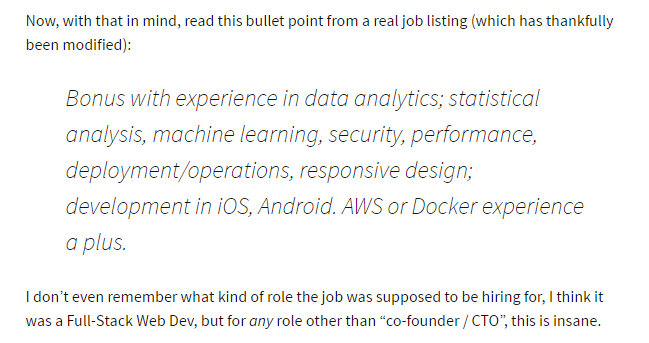 Startling evidence on the level of unconscious bias exhibited in tech interviews reveals that blind job auditions can have a dramatic impact on hiring calculus. In this case the number of women selected during the process went from 5% to 54%:
Startling evidence on the level of unconscious bias exhibited in tech interviews reveals that blind job auditions can have a dramatic impact on hiring calculus. In this case the number of women selected during the process went from 5% to 54%:
Removing traces of gender or race may prevent employers from basing interview decisions on a conscious or unconscious bias. The former would be an outright belief that women, for instance, aren’t as good at coding as men are. The latter would be more subtle and might mean a company picks the man because he better fits that employer’s unexamined idea of who a coder is.
This state of front end JavaScript frameworks assessment reveals a surprisingly popular competitor to React’s dominance in the shape of Vue. Angular is further down the list:
“Based on the current data, I think it’s safe to say that you can’t really go wrong with React, since it’s extremely widespread and has an above-90% satisfaction percentage. And although currently much smaller, Vue also seems like a good bet.”
The latest Tiobe Index data reveals that C has dropped in popularity to a historic low:
OReilly have published a free eBook called “20 Python libraries You Aren’t Using but Should” which includes a number of really neat finds like arrow, pywebview and hug. The latter in particular looks like a super handy way to create a simple web service.
ZDNet compare and contrast the huge difference in fortunes for OSS on the desktop vs. OSS at the backend following the news that OpenOffice may shut down.
Tips on integrating agile with product roadmaps or “wagile” as it has sometimes been referred to – waterfall on the outside, agile within.
Culture and Society
The changing face of MOOCs as they shift to a more tailored model to fit with individual circumstances. There is less of the mass concurrent course participation that was the hallmark of the early incumbents and more taking things at one’s own pace.
Why the green great dragon can’t exist in case you didn’t already know. It curiously echoes a broader sea-change in linguistics away from the computational “universal grammar” model popularized by Noam Chomsky to what is generally referred to as a “usage based” one in which people infer meaning through usage:

Fifteen years on, WashPo looks back at the “lost world” covered in the US news the day before 9-11.
Brexit is a process not an event and it is one that will take years to yield any definitive conclusions in terms of outcome.
